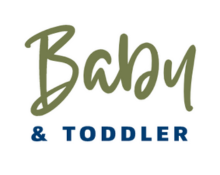
Mastitis is an infection of the breast tissue that results in breast inflammation and can cause flu-like symptoms. It most commonly affects breastfeeding women, usually within the first few weeks after giving birth. Here are some key points about mastitis:
Symptoms: The symptoms of mastitis may include breast pain or tenderness, redness or warmth in the affected area, swelling of the breast, a hard or lumpy area, and flu-like symptoms such as fever, chills, fatigue, and body aches.
Causes: Mastitis is often caused by bacteria entering the breast tissue through a cracked or sore nipple. The milk ducts can become blocked, leading to inflammation and infection. Other factors that can contribute to mastitis include engorgement, incomplete breast emptying, and compromised immune function.
Treatment: If you suspect you have mastitis, it is important to seek medical advice from a healthcare professional. Treatment typically involves a course of antibiotics to clear the infection. You may also be advised to continue breastfeeding or pumping to help drain the affected breast and promote healing. Applying warm compresses to the affected area, massaging the breast, and getting plenty of rest and fluids can also be helpful.
Continuing to breastfeed: It is safe and encouraged to continue breastfeeding or pumping even if you have mastitis. In fact, it can help alleviate symptoms and promote healing. Breastfeeding can help drain the affected breast and clear the infection. Your baby will not be harmed by the presence of bacteria in the breast milk, and it can actually provide them with antibodies to fight the infection.
Prevention: To help prevent mastitis, ensure proper breastfeeding techniques and a good latch to avoid nipple damage. Breastfeed frequently and ensure both breasts are emptied during each feeding. Avoid prolonged periods of engorgement by breastfeeding or pumping regularly. Take care of your overall health by getting adequate rest, eating a balanced diet, staying hydrated, and managing stress levels.
Remember, if you suspect you have mastitis, it is important to consult with a healthcare professional for an accurate diagnosis and appropriate treatment. They can provide guidance specific to your situation and help you manage mastitis effectively.
